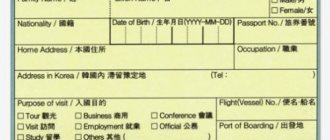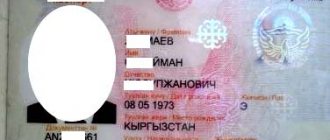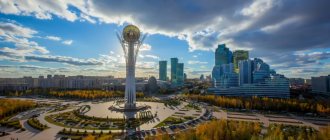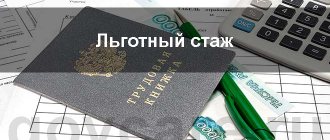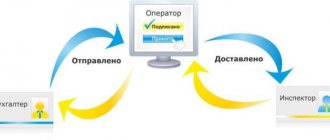Pros of working in South Korea
Why is South Korea attractive for immigrants? This country is considered one of the world leaders in the field of information technology, the production of mobile phones, cars, and every year shows an excellent example of rapid economic development. The unemployment rate there is 3.8%. If you believe the statistics, South Korea is constantly seeing an increase in the flow of immigrants who are not only willing to work, but also to live there. Another undeniable advantage of the work is the fact that, compared to other European countries, there is no negative attitude towards foreigners. Managers of firms and enterprises treat visiting specialists as their colleagues, and not just hired labor.
South Korea is considered one of the few countries where it is quite easy to find any kind of manufacturing job. This is due to the fact that a huge number of factories are concentrated on its territory, which naturally creates a demand for labor. The suburbs of Seoul and Gyeonggi Province are especially popular, as this is where a large number of jobs are located.
Employment in South Korea
Currently, there is a visa-free regime between our countries; Russians can stay in South Korea for up to 90 days out of 180, but no more than 60 days continuously. But this does not apply to those who are going to work in the country. Only the following categories of applicants can legally get a job:
- ethnic Koreans;
- highly qualified specialists at the request of the Korean employer.
On the website of the South Korean Consulate it is written in large letters “No work visas are issued to CIS citizens!!!”, so a number of questions related to official employment immediately disappear.
Among the professions in demand in the market of highly qualified specialists are:
- IT specialists;
- designers;
- engineers in various directions;
- specialists in physics and mathematics;
- chemist scientists, etc.
These categories of applicants will have to withstand intense competition, and knowledge of English and Korean is required.
Those who were unable to directly interest a Korean employer can count on the following jobs:
- general workers;
- work in a factory or plant;
- service sector (maids, dishwashers, etc.);
- farm workers.
See also: Work in Finland for Russians vacancies 2020
The job search can take place either independently (through Internet resources, print media, or by sending resumes directly to employers) or through specialized recruiting agencies. Their services cost quite a lot, but in this case it is a justified expense, because... they really help to avoid many problems that arise during employment. With the help of the agency, you can find work in a taxi, in production, in the hotel business, etc.
Jobs in South Korea for Russians, Ukrainians and Kazakhstanis
Blue-collar jobs are considered the most in demand in South Korea. Most immigrants find employment in small or medium-sized businesses, where the total number of employees does not exceed 100 people.
In the country, it is quite easy for almost any person to get a job without having any qualifications. Men get jobs in factories or factories producing furniture, plastic, sewing jeans, etc. In addition, there are jobs as packers or harvesters on farms.
Women or girls can get a job in a confectionery shop, a garment factory, or as sorters of fish and seafood. In general, the work is not particularly difficult, since the enterprises have implemented a conveyor system.
Features of work in South Korea:
- Overtime work is paid additionally.
- On average, the working day lasts 10 hours a day.
- The schedule at some enterprises may be flexible.
- Night shifts are possible.
- There are no fixed days off.
As for wages, at first it will be minimal - about $600 per month, but over time this figure will increase. Jobs in low-skilled fields can pay up to $1,000 a month.
Women, on average, have lower earnings than men:
- Women – 660-700 dollars.
- Men – 750-800 dollars.
Quite often, the employer provides its visiting employees with housing and food. Of course, you shouldn’t count on luxurious conditions, however, a portable house or container (trailer) with a refrigerator, washing machine and wi-fi is also quite good.
For visitors who have a higher education, an opportunity for career growth opens up directly in the capital itself, where the income level is an order of magnitude higher than in the suburbs. In Seoul you can get a job as a programmer, engineer, biologist or chemist. In this case, you definitely need to have a master's degree.
Labor market in South Korea
Unemployment in South Korea does not exceed 4–5%. However, the situation in the Korean labor market is causing concern among local experts, who are signaling the largest increase in the number of unemployed since the global financial crisis. Employment in the retail trade and manufacturing sectors fell markedly. At the same time, new jobs are being created in agriculture, construction and transport.
Official employment in South Korea requires the fulfillment of a number of preliminary requirements. In particular, a foreigner needs to find an employer in advance, sign an employment contract and open a work visa. Overall, the Korean immigration system includes 36 types of visas, of which 9 are employment or business related. Of course, to successfully obtain a work visa, the foreigner’s profession must be in demand in South Korea.
The national minimum wage in South Korea in 2021 is 8,720 won per hour, which is equivalent to 7.7 US dollars. Assuming full-time employment, a monthly employee must receive at least 1,822,480 won ($1,610). The average salary is around 48,040,020 won per year ($42,495), that is, 4,003,335 won per month ($3,540). The highest paid professions in South Korea are related to medicine. For example, dentists earn an average of $62,000 per year.
What to expect without knowing the language
In South Korea, lack of language proficiency can be a significant problem for many immigrants. However, some representatives of companies that offer this or that vacancy claim that there is a large percentage of Russian speakers there. However, in reality everything is a little different. Business managers prefer to communicate in their native language. As a last resort, the employee is expected to know at least English.
The main requirement for qualified specialists is knowledge of English at a sufficient level. If a foreigner also speaks Korean, finding a high-paying job will be much easier.
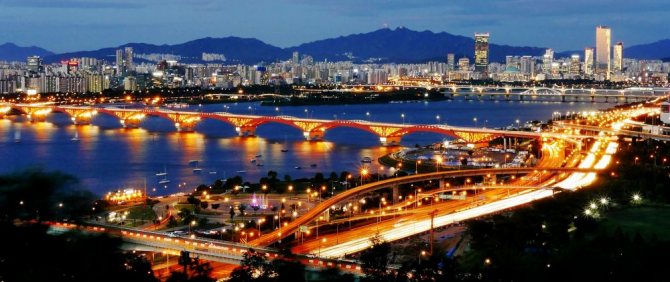
Requirements for the applicant
There are no close cultural or economic ties between South Korea and Russia. Therefore, hoping that when applying for a job you will not be required to know the language is not the best idea. You can travel with a Russian only as a tourist, and then you need a Russian-speaking guide nearby.
In all other cases, you cannot do without knowing one of two languages - Korean or English. However, which one to teach does not matter. The locals are completely bilingual. Although knowing Korean can be an advantage in an interview.
The requirements for applicants in South Korea cannot be called standard. During the interview, pay attention to:
- Professional skills. Nobody cares about education here, the main thing is to do your job well.
- Appearance. Yes, yes, this is literally the key parameter. They hire the young and beautiful, even if they lose in other respects.
- Knowledge of etiquette and traditions. Any wrong gesture or carelessly thrown phrase can become a terrible insult. You will be fired instantly.
Ways to search for vacancies
The best way to search for work in South Korea is to use the Internet. Nowadays, to obtain information about all vacancies, you can use specialized sites.
The most famous sites in South Korea:
- jobkorea.co.kr
- saramin.co.kr
- global.seoul.go.kr
You can use international resources for employment:
- careerjet.co.kr
- kr.indeed.com
- learn4good.com
You can also find current information about work through the local media Korea Herald and The Korea Times, which have an electronic version.
Searching for a job on your own is hard work. To do this, first of all, you need knowledge of English or Korean. If such a search turns out to be unsuccessful, it is best to contact specialized agencies that offer a full range of employment services - from finding the desired job to completing all the necessary documents.
What is attractive about working in South Korea?
Why do labor migrants from Russia turn their attention to this Asian country? The fact is that South Korea is on the list of world leaders in the production of cars and mobile phones, as well as information technology. At the same time, its economy is developing at a rapid pace, annually showing even higher values of its main indicators.
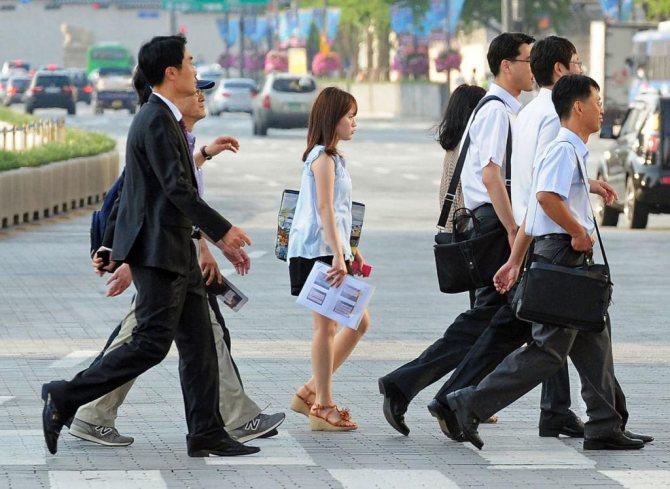
According to available data, the flow of immigrants to South Korea is constantly increasing. At the same time, many foreigners are ready not only to work in this country, but also to live in it.
Another advantage of working in South Korea is the absence of negative attitudes towards visitors. Managers of enterprises and firms put foreign specialists on the same level as their own.
Anyone looking for a country for labor migration should keep in mind that South Korea is one of the few countries where there are many vacancies in the manufacturing sector. This is explained quite simply. The fact is that there are quite a large number of factories located on the territory of this Asian country. These industries are constantly in need of labor. The suburbs of Seoul, as well as Gyeonggi Province, are especially popular among labor migrants. This is where the largest number of job vacancies are offered.
How to get a visa and work permit in South Korea
In order to go to South Korea to work, you need to obtain a work visa.
The country's immigration system provides for 36 types of visas. Let's look at the most common ones:
- D-7 - issued to those employees who work for foreign enterprises that are investing in the Korean economy, as well as to qualified specialists holding positions in branches or representative offices of foreign companies.
- C-4 – issued for short-term employment (up to 3 months). This visa does not impose any special restrictions on the type of activity.
- E-3, E-4, E-5, E-7 – long-term type of visas. Issued for qualified foreign workers for the purpose of employment in South Korean companies. For example, this type of work visa must be obtained by lawyers, doctors, and technical specialists.
It all starts with the fact that the applicant must submit an application to the Korean Consulate at his place of residence. But he can do this only after an employment contract has been concluded with the future employer. In turn, an employer who intends to hire a specialist from abroad is obliged to obtain a certificate according to which the legality of such employment will be confirmed. This is where the difficulties begin, since not all employers want to spend their time on this procedure. It should be noted that unofficial work in the country risks not only a hefty fine and deportation, but also a ban on entry into South Korea.
Documents required to obtain a work visa:
- Statement.
- Visa application form.
- International passport.
- Color photo.
- Autobiography.
- Diploma of education.
- Certificate of employment agreement.
- Certificate of no criminal record.
- Medical insurance.
Documents are submitted personally by the applicant or through 3 persons without a power of attorney (sent by mail are not accepted). There are times when a visa specialist may ask for other documents. In this case, the applicant is obliged to provide them. All papers must be translated into Korean and notarized.
Obtaining a work visa occurs within a month. First, the document is issued for a period of 1 year with the right to extend only if the employer does not change. Upon arrival in the state, you must obtain a residence permit within 90 days. To do this, you need to contact the immigration service.
Features of job search in South Korea for Russian vacancies 2021
- It’s better to fly to South Korea as a tourist, get to know the Korean capital, communicate with the Russian-speaking population, listen to their reviews about life and work in the city.
- South Korea has a fairly high level of competition in the labor market. People come here from all over the world, and experience and qualifications are decisive.
- The city is home to the main offices of large global corporations - Kia, Hyundai, Samsung, etc., which always need qualified workers, including foreigners.
- To get a good job with a normal salary, you need to know English. Additional knowledge of Korean is also a big plus for your resume. Without knowledge of the language you should not count on a well-paid job.
- It is better to send your resume to potential employers directly, without third parties. Intermediaries may turn out to be scammers. You can also contact a professional recruitment agency, preferably South Korean or international. There are agencies on the territory of the Russian Federation in Nakhodka and Vladivostok.
- Those who decide to come to South Korea not on a work visa can get an “arbeit”, that is, hard work that pays below average. These are usually places for handymen.
- While searching for vacancies on the Internet, you can place an ad like “looking for a job in South Korea,” attach a resume to it, and monitor visits to the page.
See also: Schengen visa for 5 years how to get
Hostess work, vacancies and salaries
For women or girls in South Korea, the most popular job is as a hostess. This job does not require any special qualifications, however, knowledge of a language other than English will be very useful. There are several areas in which girls (women) can work in this area: meeting guests, serving guests, managing waiters.
Such vacancies are most often open in entertainment establishments such as bars, restaurants, clubs or karaoke. In such a position, girls (women) can earn about $2,500 per month (this amount does not include tips).
For those who come to the country to work as hostesses, the employer provides housing. Basically, this is a residential block or room (apartment) directly next to the club or not far from the restaurant. Several people (girls or women) live in a living room at once. In addition, the housing is equipped with everything necessary: shower, kitchen, washing machine, etc.
Shift work
Quite often, work on a rotational basis is in demand, which involves traveling to South Korea for a certain period of time (mostly from 2 months). As a rule, vacancies are available in agriculture - harvester, auxiliary worker, vegetable grower, etc.
Housing and food are provided at the expense of the employer. Weekends - in rainy or windy weather, and if weather conditions are favorable, you can take one day a week at the request of the employee. Such work is paid from $90 per day.
Working in South Korea - reviews from those who left
Good day everyone! I personally lived in Korea for more than six months, so I know very well what is happening there. I recommend that those who want to go think very carefully. I am in no way discouraging it, but there is no easy job in Korea. It's hard there both physically and mentally. Therefore, if you have good motivation, then you will be able to work there, but if you think that it is a resort, you are mistaken.
Below I will describe in more detail: 1. The working day is 12 hours (this is for most vacancies, of course there are better conditions, but there are also worse ones). And all these 12 hours you will work almost non-stop (this is not Russia, where in 8 hours of work they manage to smoke a pack of cigarettes).
2. Everything needs to be done quickly (their favorite word is “Pali”, which translates as “faster”): move quickly, think quickly, learn quickly and even eat quickly (but again, it all depends on the place where you find yourself).
3. Mentality. Koreans are very hierarchical in everything, and you will be at the bottom of the work hierarchy. What does this mean: the sajjan (owner) can shout at you, swear (it’s also normal for them to crack the back of the head or the butt if an employee does something wrong). It is very rare for sajans to show physical aggression, but if this happens, you don’t need to fight with them (if you fight, you’ll be handed over to the police), but you shouldn’t let yourself be offended either. You need to make it clear by your appearance that you are ready to fight back. We had such a case when a hanguk hit a worker with a stick, the worker took the stick and, with a menacing look, said a couple of affectionate things to him. Hanguk, of course, did not understand the text, but he realized that if he continued, he might get an answer. But after such cases, you usually have to change your place of work. In no case should you teach the sajjan how to do the job better, they are very conservative, plus you are at the bottom of the work hierarchy!
4. Sometimes they fire you for funny (to our understanding) reasons, for example, he eats little, he smells strongly of sweat.
5. Alcohol. Most Koreans drink a lot. But unlike our alcoholics, they still go to work early in the morning. If you live in a Korean family and eat at the same table, then their hospitality obliges you to offer you everything that they eat and drink. Therefore, when you are offered alcohol, it is better to refuse, so that later you are not fired for drinking too much.
6. At the very beginning of your work it will be very difficult for you due to the language barrier. Sajjan will be annoyed that you do not understand him, so he may shout a lot (and there are those who shout constantly). There is no need to take it to heart and accumulate resentment, they have such a mentality, this is normal for them.
7. Food. She's sooooo spicy. Plus, it is specific and the set of products is different from what we are used to. Little potatoes, little meat, a lot of vegetables, a lot of different seaweeds. But if your meals are paid for by your employer, this is a very big plus, since their products are expensive (like everything else)
In fact, I can tell you a whole bunch more, but it will take a lot of time.
To sum it up: if you need money (really need it), if you adapt easily, if you are hardy (many told me that they were super hardy, and then ran home after a week), then prepare yourself mentally for the toughest conditions (it’s better to let in the end, the conditions will be better than you expected, rather than vice versa) and go to work.
Without a visa, you can stay for 2 months or remain an illegal immigrant for a longer period (but there is no point in remaining an illegal immigrant for less than 6 months, since after leaving the country you will definitely not be able to go there in the next 3 years).
Those who say that you can’t make money in Korea fall into two categories: they skip their entire salary or run from one job to another without even working for a month (I’ve seen it many times about those who drink everything away, some say so directly that I go to clubs). One guy sent home only 150,000 rubles in 8 months, which I personally gave to his mother when I returned from Korea.
I read here that they recommend traveling without agents and so on. My opinion is this: if you have friends in Korea and they are guaranteed to accommodate you, then you can. And if you are eating for the first time and you don’t have anyone there, then it’s better to contact an agent, yes, you will pay for the service, but it will pay off. But the decision is up to you.
If you need work, you can write to me, I deal with ferry tickets and work directly with Hanguk, but I don’t have factories or construction sites, I only have maritime vacancies for men on Kim and Chambok. There are no jobs for women yet, but soon Kim will appear in factories (the work is easy on the one hand, and hard on the other).
In any case, I hope my review will help you decide whether you personally should go to Korea to earn money.
WhatsApp 8-914-341-88-55
Work in factories and industries, labor as laborers
It also happens that Russian citizens go to South Korea without obtaining a work visa. This is possible if the period of stay in the country does not exceed 60 days. In this case, employment occurs in the so-called “arbeit” - low-paid work that does not require qualifications.
A foreigner in Korea with a similar status is provided with housing by the employer and is sent daily to a site where he performs certain work (the activities of a general worker may vary). Most often, foreigners do auxiliary work, helping in the kitchen, harvesting crops, etc. The pay for such work is not high - 50-100 dollars a day. A working day can last more than 10 hours.
Immigrants who go to South Korea and already know that they will work at a specific enterprise (factory) have their advantages over those who, for example, go to work in the fields. In particular, the advantage lies in the housing that the employer provides for such employees. On average, a working day for people employed in factories lasts up to 9 hours, and as for wages, a person can receive from $70 per day.
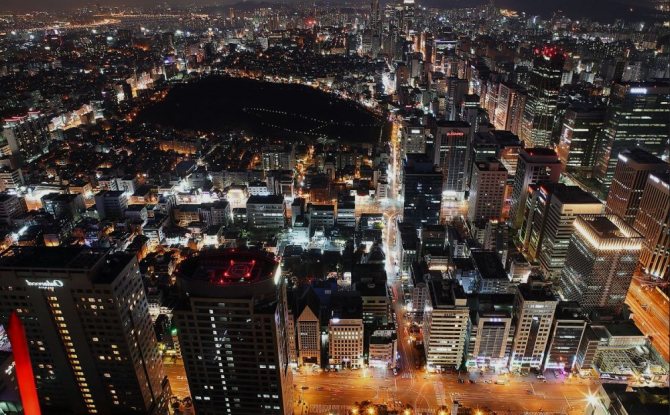
Jobs in South Korea for Russians, Kazakhs and Uzbeks
How can citizens of Russia and CIS countries work in Korea? Foreigners (Russians, Kazakhstanis and Uzbeks) apply for vacancies in South Korea that do not require certain knowledge, qualifications and work experience. Even a simple worker will receive 2-3 times more than in the Russian Federation. The average salary in the country is 2 million won.
At factories for the production and assembly of vehicles and equipment, there is a clear division into positions - women's employment and men's. Women check parts for defects, sort them, and correct defects where possible, doing this manually. Men control the work of the robot welder, take measurements, press parts. The division of labor occurs in such a way that girls will not do the work of boys, and boys will not do the work of girls.
For men
Men from the Russian Federation, Uzbekistan and Kazakhstan are offered the following employment vacancies:
- furniture production;
- construction;
- seafood production and processing;
- employment in lower positions at automobile factories and equipment manufacturing enterprises;
- at gas stations;
- other.
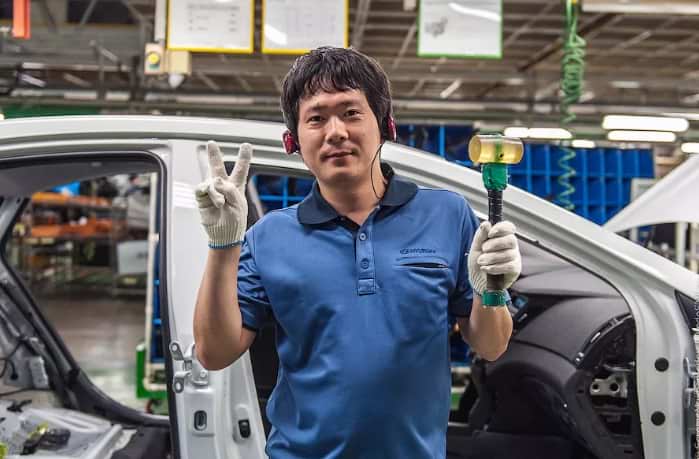
For women
Job vacancies in Korea for visiting girls are as follows:
- waitresses;
- maids;
- cooks;
- dishwashers;
- other low-skilled labor.
If a visiting woman gets a job at a motel, she may be provided with a room to stay. If there is none, then they provide free travel to the place of work and meals during the working day.
Job Opportunities for Married Couples
In South Korea, there are vacancies for which married couples are invited to work. The most common option is to work on the country's sea farms. The workers' responsibilities include a variety of tasks: from tying knots and lifting buoys to growing shells and seaweed.
This kind of work requires physical effort, so a number of requirements are put forward for future candidates and mainly there is an age limit. Such work involves performing duties both on land and in water. Days off are considered to be those days when the weather is windy or rainy.
As a rule, married couples are provided with free housing and food. Payment for such labor is estimated at approximately $1,376.
